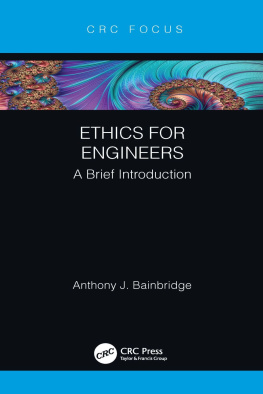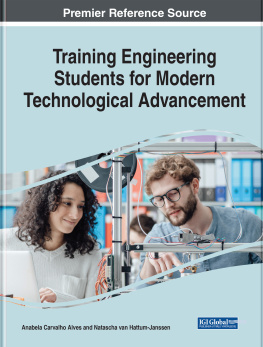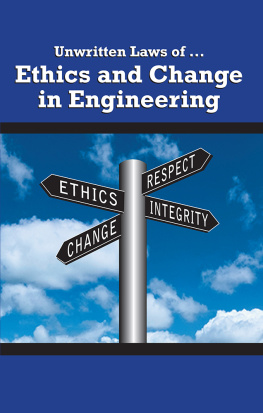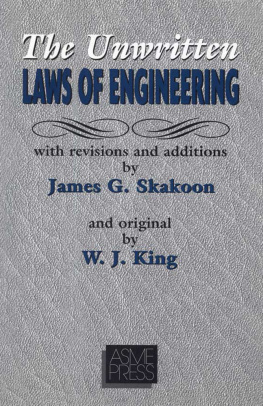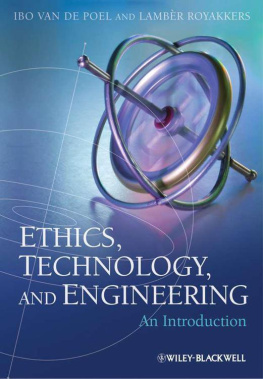
Ethics for Engineers: A Brief Introduction
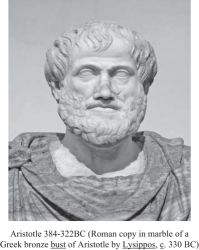
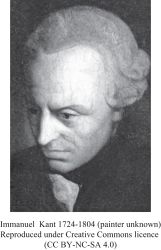
Ethics for Engineers: A Brief Introduction
Anthony F. Bainbridge

First edition published 2022
by CRC Press
6000 Broken Sound Parkway NW, Suite 300, Boca Raton, FL 33487-2742
and by CRC Press
2 Park Square, Milton Park, Abingdon, Oxon, OX14 4RN
2022 Anthony F. Bainbridge
CRC Press is an imprint of Taylor & Francis Group, LLC
Reasonable efforts have been made to publish reliable data and information, but the author and publisher cannot assume responsibility for the validity of all materials or the consequences of their use. The authors and publishers have attempted to trace the copyright holders of all material reproduced in this publication and apologize to copyright holders if permission to publish in this form has not been obtained. If any copyright material has not been acknowledged please write and let us know so we may rectify in any future reprint.
Except as permitted under U.S. Copyright Law, no part of this book may be reprinted, reproduced, transmitted, or utilized in any form by any electronic, mechanical, or other means, now known or hereafter invented, including photocopying, microfilming, and recording, or in any information storage or retrieval system, without written permission from the publishers.
For permission to photocopy or use material electronically from this work, access www.copyright.com or contact the Copyright Clearance Center, Inc. (CCC), 222 Rosewood Drive, Danvers, MA 01923, 978-750-8400. For works that are not available on CCC please contact mpkbookspermissions@tandf.co.uk
Trademark notice: Product or corporate names may be trademarks or registered trademarks and are used only for identification and explanation without intent to infringe.
ISBN: 9781032076904 (hbk)
ISBN: 9781032077086 (pbk)
ISBN: 9781003208433 (ebk)
DOI: 10.1201/9781003208433
Typeset in Times
by Deanta Global Publishing Services Chennai India
DEDICATION
For my Grandson Leo
who will surely become more ethically aware
than his Grandfather has been
The most important human endeavour is the striving for morality in our actions. Our inner balance and even our very existence depend on it. Only morality in our actions can give beauty and dignity to life.
Albert Einstein
It is clear, then, . that it is not possible to be good in the strict sense without practical wisdom, or practically wise without moral virtue.
Aristotle, The Nicomachean Ethics, vi, 13
Our whole life is startlingly moral. There is never an instants truce between virtue and vice.
Henry David Thoreau
If to do were as easy as to know what were good to do, chapels had been churches, and poor mens cottages princes palaces. It is a good divine that follows his own instructions: I can easier teach twenty what were good to be done, than be one of the twenty to follow mine own teaching.
Shakespeare, Merchant of Venice, 1, ii.
Contents
This book began as a short series of lectures given to second-year engineering students in the Faculty of Engineering & Design at the University of Bath, as part of a Semester-2 course called Group Design & Professional Engineering Practice. The initial requirement was for a brief programme to introduce students to the statutory and regulatory aspects of engineering today and arose from a comment by an academic accreditation panel from the Institution of Engineering and Technology.
It became clear as the course developed, and as concerns grew in the world outside the classroom about the ethical basis of decision-making in business, that the course should draw attention to ethical concerns in product design. In any event it was also clear that the major issues with which I had to deal in the context of legislation, statute, and regulation raised fundamental ethical questions for the engineering profession outstandingly so in the matter of product safety.
At about the same time the UK Engineering Council, the Royal Academy of Engineering, and all the major professional bodies promulgated guidelines on the significance of ethical awareness in the world of practising engineers. The Engineering Council UK (EC UK) has published a 4th edition of UKSPEC, the standard which maps the competences registered engineers were expected to demonstrate, incorporating a clear requirement for registration candidates to have thought about the ethical practices around them and to be ready to observe, comment on, and, if necessary, amend their ethical behaviours.
The aim and content of the course then became: To provide students with knowledge of the ethical and statutory frameworks under which professional engineers operate. The course has run for over ten years, developing and broadening in the process. The task I always impose on myself never to teach the same course twice requires me to review constantly both my material and my delivery. Duty is a hard taskmistress.
This short book is not intended as anything more than a primer covering the main issues which inevitably arise in any discussion of ethics in the engineering context or indeed in any context involving the applied sciences. The reference list is full enough to lead interested readers into deeper analyses and wider applications. My context is engineering for the simple reason that I am an engineer with a long career which has enabled me to touch on many fields within the engineering profession. I have been proud to call the IET formerly the IEE my professional home for 60 years.
The reader will find many rhetorical questions throughout this work, for which I make no apology. Any account of the role of ethical attitudes in a professional context faces the massive issue that in the end we decide for ourselves. The matter cannot be treated like a topic in an engineering manual, where in general one expects to find clear pointers and recommendations. Instead we must find our own answers.
I have occasionally followed the established usage he and his in referring to the engineer in general. The welcome rise in the number of women engineers is already transforming the profession, and this process will surely continue; but I am uncomfortable with the use of they to cover single members of either gender, and I find s/he clumsy. I have tried to work around the problem, but may not always have succeeded in doing so.
(Dr) Anthony F. Bainbridge
Part-time Teaching Fellow, University of Bath
April 2021
I am grateful to Dr Adrian Evans, Head of Department, and to my colleagues, Dr Francis Robinson and Dr Steve Pennock of the Department of Electrical and Electronic Engineering at the University of Bath, who, stepping into the unknown, invited me to create and deliver the course in 2011; for supporting me in my role and for substantial help, advice, and tolerance as I found my way around the departmental and university processes and procedures. Their welcome has enabled me to pace the lecture theatres of the University of Bath for many years. I have of course learned much from the insights of many students expressed after lectures or in their assignment reports.
Next page
